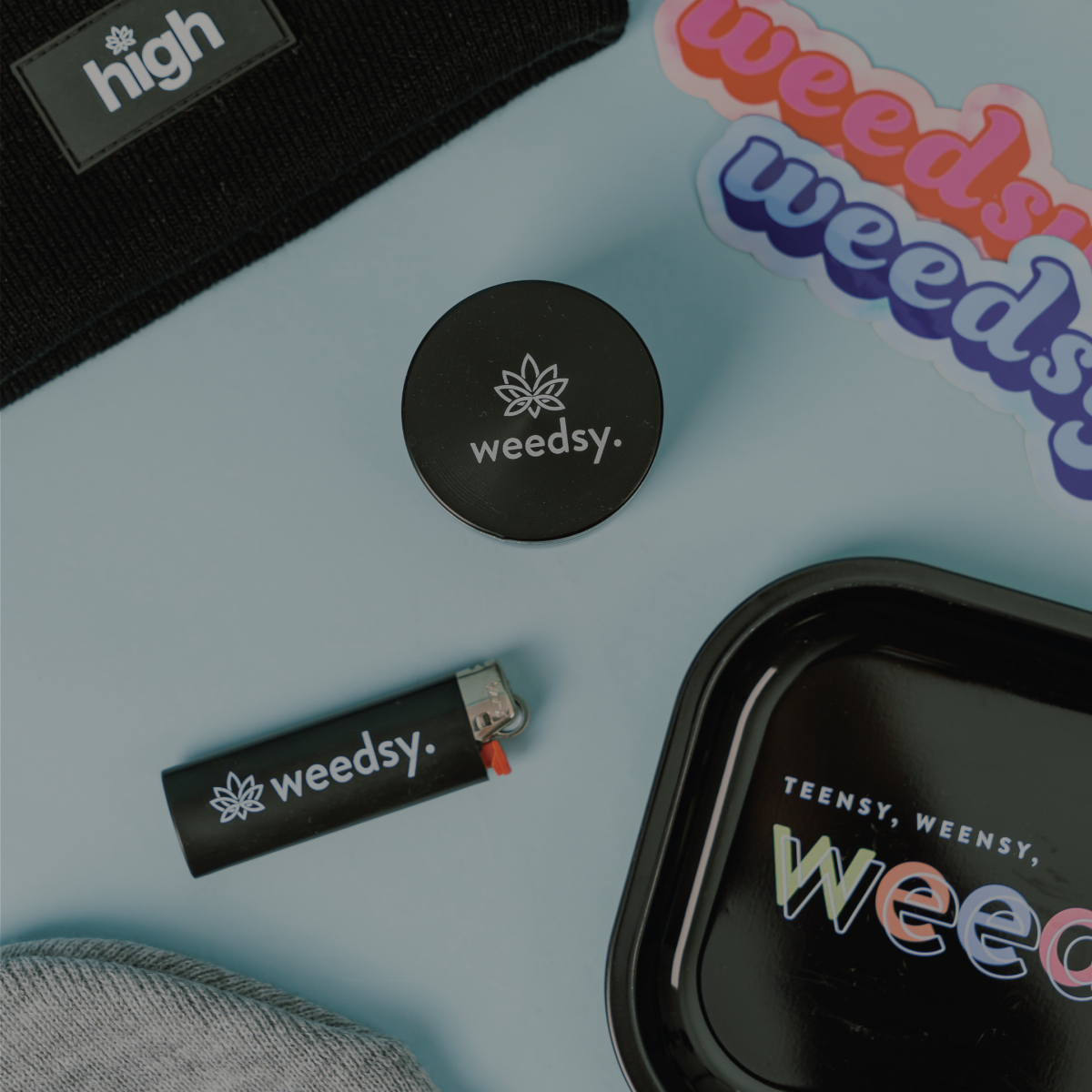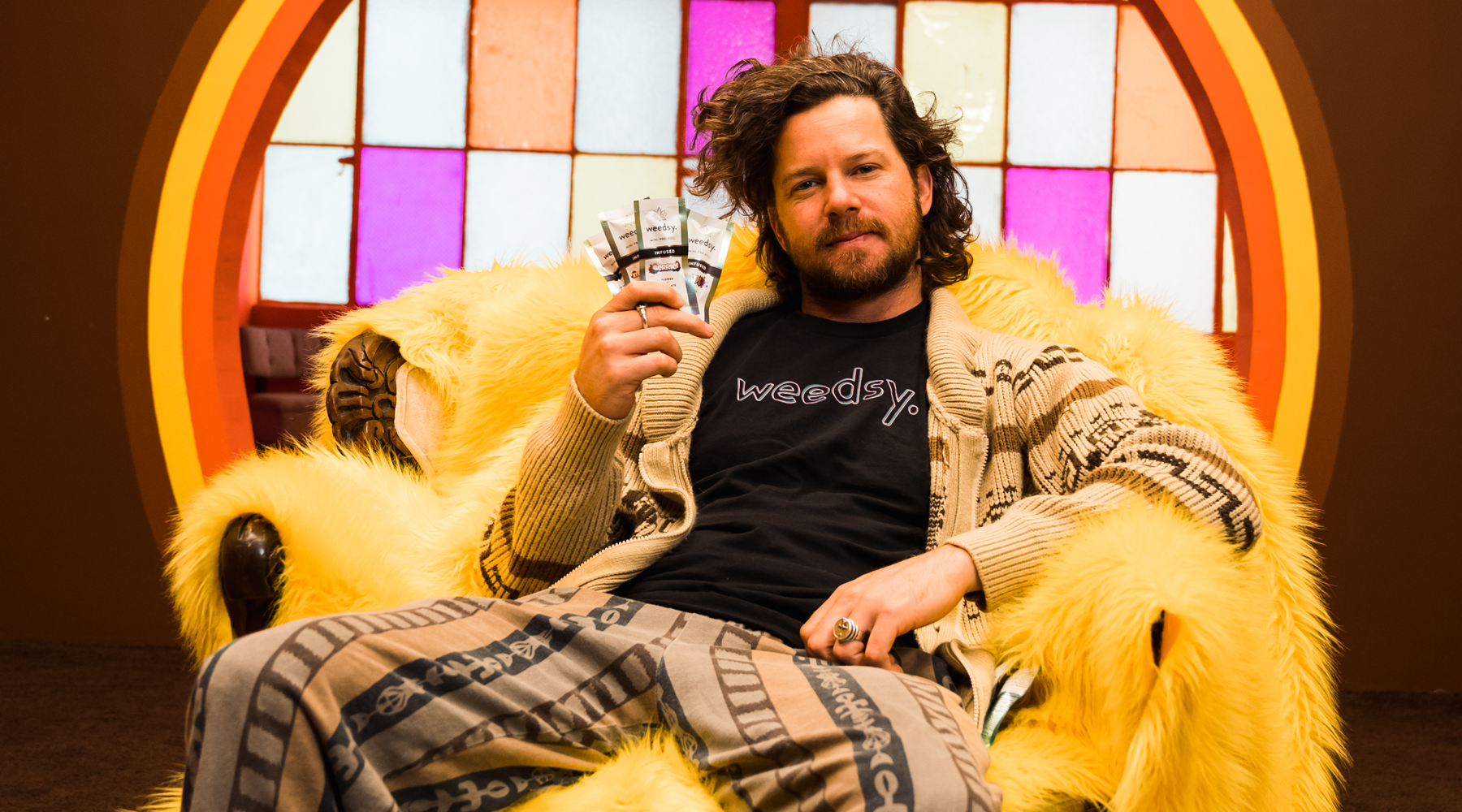Let's take a break from the anti-sharing vibes for a bit to focus on a topic that's been a back-and-forth discussion since cannabis was made illegal nearly 100 years ago. Here we are, in 2022, and 38 states have made our favorite psychoactive plant legal to some degree. That's 38 states that see the plant as harmless, a tax revenue stream, and if nothing else, a therapeutic option for patients that needs it.
At the same time, here we are, in 2022, and the federal government still sees the plant as a gateway drug into more-hardcore substances, unsafe, and that its users should be thrown in jail. This piece is about federal legalization of cannabis - and what the benefits would spell out should the topic ever be voted upon by the general population. So let's pick up two or three Weedsy Infused mini pre-rolls, get nice and toasty, and dive right in!
HOW DID WE GET HERE?

If you've never studied history in your life and were to look at the state of the cannabis industry in this day and age, there's little to no understanding of how we got here. In 2022, there are 38 states that have legalized cannabis for medical use, 18 of which have given the greenlight to recreational use, and Delaware's full-on legalization is just a signature away. Polls show an overwhelming majority of Americans - to the tune of 91% support the legalization of cannabis.
Despite its widespread support and use of the plant, and whether the state you live in legalizes it or not, cannabis is still very much illegal in the eyes of the federal government. In fact, cannabis is categorized as a Schedule 1 controlled substance, sharing the same negative view as actual, harmful, illicit drugs such as heroin. On top of that, cannabis has consistently been a target in the War on Drugs - an initiative embraced by the US government for an upwards of 30 years.
So you mean to tell us that in 30 years, countless of unnecessary arrests later, an uptick in violence across American communities, and overwhelming support for legalization, the government still refuses to turn over a new leaf and welcome the substance into mainstream legality? Why? By keeping cannabis illegal, thousands of people remain in federal prison for non-violent, cannabis-related offenses. It means that military veterans cannot access medical cannabis through the VA system. It also means state-legal, taxpaying cannabis businesses are criminal enterprises in the eyes of the DEA. Again, why? Why do we allow a substance that if properly regulated, can bring such large benefits to the overall quality of life as an American?
THE CASE FOR FEDERAL LEGALIZATION OF CANNABIS
Proponents of cannabis legalization argue several points as a benefit to the American public. From economic stimulus and job creation, to freeing up police resources, and making a serious dent in fixing racial disparities, what's not to love? By legalizing cannabis, you are looking at reduced rates of street crime, lowering the power of illicit drug cartels, and opening up the industry for further scientific and therapeutic study!
LEGALIZATION BOOSTS THE ECONOMY
The economic benefits of legalizing weed has already been apparent as the first states that have done so are already experiencing unprecedented growth of its supporting industries and tax revenue. For every $1.00 spent, between $2.13 and $2.40 in economic activity is generated through other industries that will support it. And looking at the states that already legalize cannabis, an uptick in tourism, banking, food, real estate, construction, and transportation are all experiencing this growth.
What does that look like for taxes? In 2019, Colorado collected more than $1.7 billion dollar in sales, allowing the state to collect nearly $302 million dollar in taxes and fees for both the medical and adult-use sectors.
Should cannabis become federally legal, the benefits to the national economy could be exponential. New Frontier, a cannabis analytics company suggest that federal cannabis could generate an upwards of $105.6 billion dollar in federal tax revenue by 2025. It's taxes like this, that the people are ready and willing to pay for - pay attention, Congress!

THE ECONOMIC BOOM LEADS TO MORE JOBS
Looking at Oklahoma, which is a medical-use state, yet remains as one of the hottest states to house a cannabis industry, is ranked 9th in the country for the amount of jobs it supports. This is a state with a population of less than 4 million residents, sharing the spotlight with states like California, which is home to 39 million people. In 20202, Leafly published their annual Cannabis Jobs Report and detailed that Oklahoma contributes 16,759 cannabis-related jobs; bringing in the state several hundreds of millions of dollar in income and taxes.
Zooming out, what sorts of jobs are required to keep a happy and health cannabis industry afloat? Think of cultivation sites, dispensaries, manufacturing facilities, warehouse workers, sales representatives, and marketing directors for the various brands. Then there's the support industries that would experience job creation including but not limited to: software development, financial services, and construction companies to build out and improve the industry infrastructure. These are jobs being done inside of America and offered to taxpaying Americans. Again, what is the issue here? If the state can eat, its residents can eat too, right?
FOREIGN INVESTMENT IS THE KEY TO THE EXPLOSION OF AN INDUSTRY
Here's the problem with cannabis being illegal at the federal level: it is very difficult for investors to capitalize on the growth of the cannabis industry. While there are publicly-traded cannabis businesses to exist in our space (say HIGH to MJHI, our multi-state operator that allows us to exist in states like Oklahoma and Arizona), the potential for growth is still limited to over-the-counter exchanges. And if you were to try to get into the cannabis investment game, you're only really contributing smaller investments into existing U.S.-based companies while contributing greatly to the bigger power plays that are based in Canada.
Should cannabis become legal at the national level, cannabis companies would be free to list their stocks on all U.S. exchanges as a way to enhance their liquidity and access more investors. At the end of the day, investment, if done correctly, can seriously spearhead unprecedented growth!
LEGALIZATION LESSENS THE RESOURCE LOAD OF LAW ENFORCEMENT

When considering the overall quality of life in America, many point to "funding the police" as a contributing factor towards the lack thereof. If you remember in the middle of 2020 the George Floyd protests were in just about every major city in the country and during that time, cities and counties were increasing their already-ridiculously large police budget. And now, even after the protests subsided, we, as taxpayers, are still obligated to fund an institution that really only amounts to a bunch of men with guns that bully us into following seemingly arbitrary laws that are racially focused. We don't mean to sound like a radicalized BLM protester here, but, how exactly would a police officer keep me safe as a stoner? If anything, it makes me even more afraid of consuming my weed in the comfort of my own home knowing that at any given time, someone can smell the cannabis smoke, call the police on me, and I'd experience my door getting kicked in.
As it stands, federal cannabis enforcement costs several billions in taxpayer money annually. And if you look at the states that legalize cannabis for either medical or adult-use, the amount of funding going towards drug enforcement is significantly lower. The police budget is lower, the number of uniformed and plain-clothes police officers on the street is lower, the courthouses can focus on other cases that actually need a judge, jury, and prosecutor, and most importantly, the money we pay in taxes are going towards law enforcement for an institution that would actually make our lives better, not worse!
THE COMMODITIZATION OF CANNABIS WILL LEAD TO CHEAPER HEALTHCARE
This point is still up for speculation, but it can be argued that by legalizing cannabis at the national level, the therapeutic benefit for patients increases several times over. As it stands, accessibility for military Veterans is a very hit-or-miss experience. And patients that do qualify for cannabis treatments still pay a hefty premium simply because of its legal status. As cannabis becomes legal in more and more parts of the country, it's likely that the price of both cannabis and pharmaceutical drugs will drop overall as a result of commoditization. While this will likely experience in a drop of tax revenue, the cost-benefit for medical treatment a little more affordable plays incredibly well to voters.
THE DATA PAINTS A NICE PICTURE
We don't know about you, but the cannabis legalization issue has been a topic of discussion for a number of administrations now. Whether Democrats or Republicans hold power, there is a real gain to be experienced by legalizing cannabis. Not only does it give people access to its many properties on a therapeutic level, but it's honestly a fairly harmless thing to engage in. And given the amount of economic goodness that would come from legalization, we need to start asking our representatives: WHAT IS THE HOLD UP?!
Will cannabis be legalized in the near future? Probably! Will it happen under the current Presidential administration? Probably not, but we have hope that it'll come around eventually!











Leave a comment
This site is protected by hCaptcha and the hCaptcha Privacy Policy and Terms of Service apply.